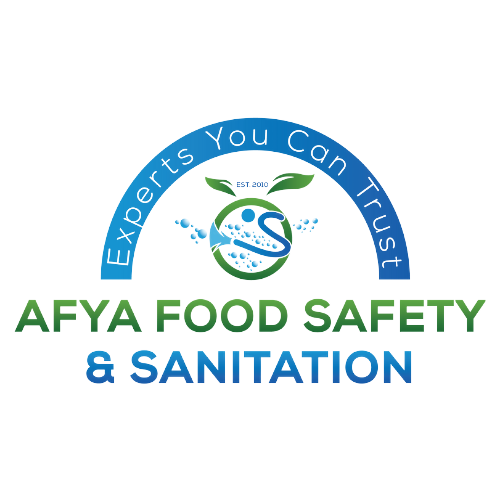
Please Wait For Loading

Please Wait For Loading
Maryland, MD USA
+1 (443) 666-9132
info@afyafoodsafety.com
Opening Hours: 9:00 AM - 5:00 PM
Copyright ©Afya Food Safety all rights reserved.
You can also reach us via Phone: +1 443 666 9132 or via Email:info@afyafoodsafety.com
Maintaining the Sweet Spot: Bakery Cleaning and Sanitation
Bakeries are more than just places where delicious pastries and bread are crafted; they’re sanctuaries of flavor and aroma. However, behind the scenes, diligent bakery cleaning and sanitation practices play a crucial role in upholding these standards. From the gleaming countertops to the spotless ovens, every aspect of cleanliness is pivotal in ensuring food safety and preserving the reputation of the bakery. In this comprehensive guide, we delve into the nuances of bakery cleaning and sanitation, exploring best practices, and the significance of maintaining impeccable hygiene standards.
Understanding the Importance of Bakery Cleaning and Sanitation
Maintaining impeccable cleanliness in a bakery isn’t merely about aesthetics; it’s about safeguarding public health. With ingredients like flour, yeast, and dairy products, bakeries provide a fertile environment for microbial growth if hygiene standards are compromised. Cross-contamination, allergen contamination, and the proliferation of harmful bacteria are genuine risks that can lead to foodborne illnesses and tarnish the bakery’s reputation irreparably. Moreover, regulatory authorities enforce stringent hygiene standards, and failure to comply can result in penalties, closure, or legal repercussions. Therefore, prioritizing cleaning and sanitation isn’t just good practice; it’s imperative for the success and sustainability of any bakery operation.
Best Practices for Bakery Cleaning
Establish a comprehensive cleaning schedule that covers daily, weekly, monthly, and periodic tasks. Allocate specific responsibilities to staff members and ensure accountability.
Thorough training to staff on proper cleaning techniques, chemical handling, and sanitation protocols. Regular refresher courses can help reinforce these practices.
Select cleaning agents approved for use in food establishments. Avoid products containing harsh chemicals that may leave residues or pose health risks.
Encourage staff to clean as they work to prevent the accumulation of debris and spills. Promptly wipe down surfaces, utensils, and equipment to maintain cleanliness throughout the day.
Regularly disassemble and deep clean bakery equipment to remove the buildup of grease, flour, and other residues.
Use sanitizers approved for food contact surfaces to eliminate bacteria and pathogens effectively. Pay particular attention to high-touch areas like countertops, handles, and switches.
Maintain optimal temperature and humidity levels in the bakery to inhibit microbial growth and preserve food freshness.
Routinely inspect the premises for signs of pests and implement measures such as sealing cracks, storing ingredients properly, and employing pest control services if necessary.
Emphasize the importance of personal hygiene among staff members, including handwashing, wearing clean uniforms, and covering hair and wounds to prevent contamination.
Keep detailed records of cleaning activities, including dates, tasks performed, and any issues identified. This documentation is invaluable for audits and compliance purposes.
Challenges & Solutions
While maintaining impeccable cleanliness in a bakery is paramount, several challenges may arise, including time constraints, staff turnover, and budget limitations. However, proactive measures can mitigate these challenges.
Conclusion
In a bakery, cleanliness isn’t just a virtue; it’s a necessity. From preventing foodborne illnesses to preserving the integrity of baked goods, meticulous cleaning and sanitation practices are the cornerstone of every successful bakery operation. By adhering to best practices and overcoming challenges, bakeries can maintain the sweet spot of impeccable hygiene standards, delighting customers and safeguarding public health with every delectable treat they create.
Related Posts
Categories
Antibiotic Resistance: A Growing Threat to Food Safety
April 17, 2025Understanding Cross-Contamination: A Major Food Safety Risk
March 31, 2025Calender